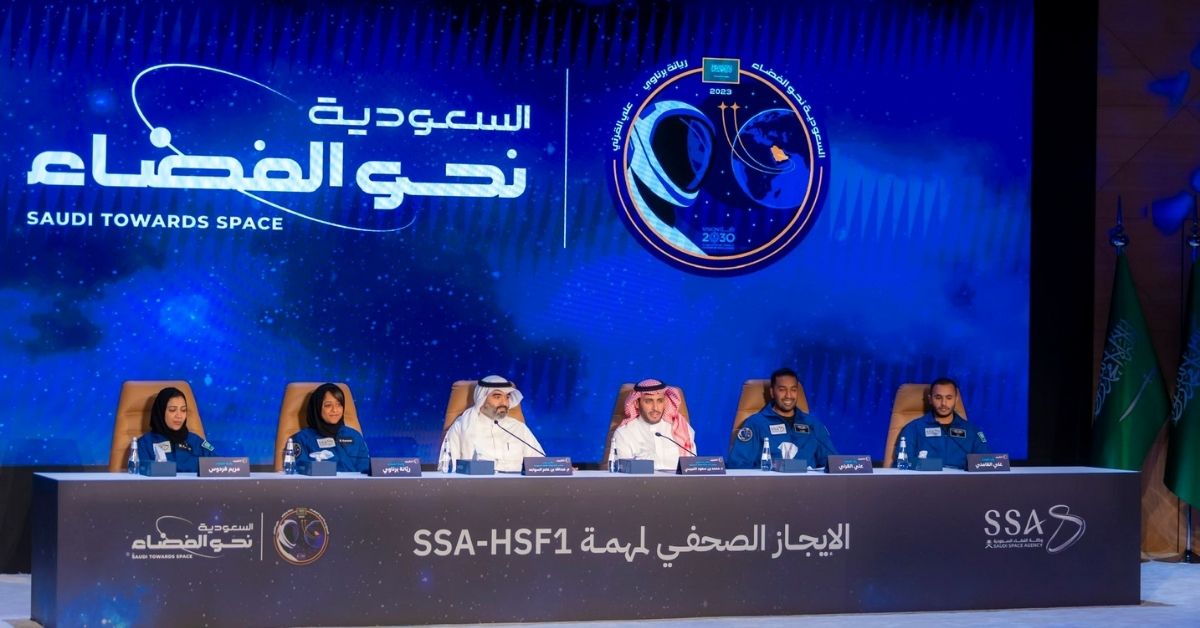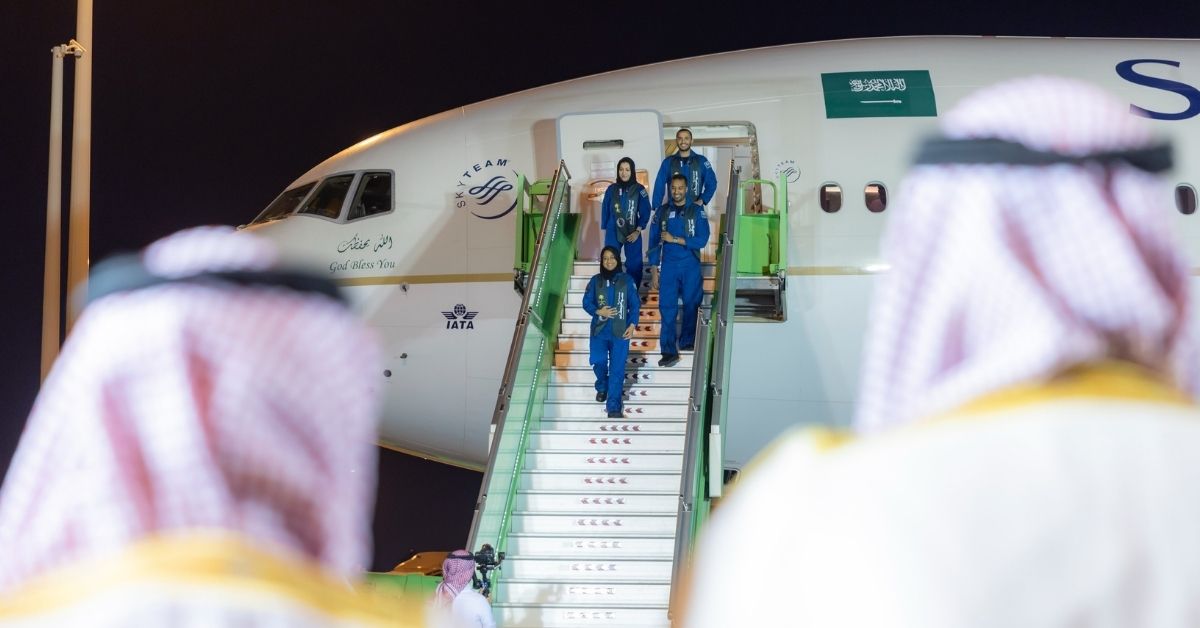RIYADH – Saudi Arabia’s ambitions are not just limited to Earth. As part of its broader strategy to diversify its economy and integrate advanced technology, the Kingdom is setting its sights on the stars.
In a significant move, the Saudi Space Authority was founded in 2018. Fast forward to September 2022, and the Authority launched the “Astronauts” program. This ambitious initiative aimed to send Saudi astronauts into space by 2023, a goal that has been successfully achieved.
Parallelly, the Kingdom is fostering partnerships with the private sector to train and onboard young astronauts. In a recent development, Serco Middle East inaugurated its space division in Riyadh this March. The company is now inviting applications for its two-year Graduate Space Programme, targeting young national engineers.
Serco’s Saudi Space Division, acting as a government impact partner, will leverage the company’s extensive global experience in the space sector. The goal? To train and educate Saudi nationals in various space-related professions.
Amar Vora, Head of Space at Serco Middle East, emphasized the importance of this initiative. “To address the ambitions of the space agency and the Saudi government within the space sector, the need for space skills and talent is going to be important,” Vora stated.

Highlighting a global challenge, Vora explained, “There aren’t enough people to fill the needs of the growing space industry globally.” This shortage underscores the significance of Serco’s space program in Riyadh, aligning with Vision 2030’s objectives to diversify the economy and foster a knowledge-based, tech-driven industry.
In a conversation with TRENDS, Vora elaborated on the program’s goals. “We’re looking to bring the entry-level roles and apprenticeships in the space sector together to specifically target space graduates within Saudi Arabia,” he said.
Serco is currently on the hunt for a Graduate Space Data Engineer and a Graduate Space Operations Engineer. The former will play a pivotal role in managing Earth observation data across various projects and will also undergo a six-month training stint at the ESA Centre for Earth Observation in Italy. In contrast, the latter will gain hands-on experience during a similar tenure at the European Space Agency’s Operations Centre in Germany.
After their international placements, these engineers will return to Saudi Arabia, equipped with new skills, and continue their graduate program.

Vora highlighted the broader vision, stating that the program aims to expand Serco’s projects in the Middle East, with Saudi nationals at the helm.
However, the journey is not without challenges. Vora acknowledged the ambitious nature of Saudi Arabia’s space strategies, emphasizing the need for international partnerships, support from global space agencies, and industry players like Serco.
The ultimate goal? To localize knowledge, foster capabilities with Saudi nationals, and establish a sustainable space ecosystem driven by the national community.
Vora is optimistic about the Kingdom’s potential in the space sector. “Developing local talents is essential,” he said, adding that the country aims to be recognized globally, with hopes of its agency ranking among the top 10 space agencies internationally.
The space sector promises a plethora of job opportunities, ranging from spacecraft manufacturing and operations to data management.
Discussing the Kingdom’s potential to compete with space giants like Russia or the US, Vora cited the success of the UAE’s space industry. He also highlighted the advanced space programs offered by universities in both the UAE and Saudi Arabia.
The term “space economy” encompasses all economic activities related to space exploration and research. As per a report by The Space Foundation, the space economy’s value in 2022 stood at a staggering US$ 469 billion, marking a 9 percent increase from the previous year.
In a bid to secure its position in the space economy, Saudi Arabia has taken several initiatives, including the establishment of the “Communications, Space and Technology Commission” and the launch of the Kingdom’s program for astronauts.
Furthermore, the Kingdom has inked numerous agreements, such as the “Artemis” pact with NASA, and has successfully launched 16 Saudi satellites between 2000 and 2019 under the aegis of King Abdulaziz City for Science and Technology (KACST).
Saudi Arabia’s tryst with space isn’t new. In 1985, Saudi prince Sultan bin Salman bin Abdulaziz made history as the first Arab astronaut, journeying into space aboard the American space shuttle “Discovery.” With these recent developments, the future indeed seems promising for Saudi Arabia’s space endeavors.








